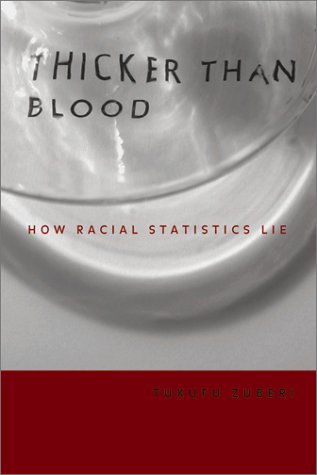

Most ebook files are in PDF format, so you can easily read them using various software such as Foxit Reader or directly on the Google Chrome browser.
Some ebook files are released by publishers in other formats such as .awz, .mobi, .epub, .fb2, etc. You may need to install specific software to read these formats on mobile/PC, such as Calibre.
Please read the tutorial at this link: https://ebookbell.com/faq
We offer FREE conversion to the popular formats you request; however, this may take some time. Therefore, right after payment, please email us, and we will try to provide the service as quickly as possible.
For some exceptional file formats or broken links (if any), please refrain from opening any disputes. Instead, email us first, and we will try to assist within a maximum of 6 hours.
EbookBell Team

4.3
88 reviewsIn this timely and hard-hitting volume, Tukufu Zuberi offers a concise account of the historical connections between the development of the idea of race and the birth of social statistics. Zuberi describes the ways race-differentiated data is misinterpreted in the social sciences and asks essential questions about the ways racial statistics are used: what is the value of knowing the income disparities, differences in crime or incarceration rates, differences in test scores, infant mortality rates, abortion frequencies, or choices of sexual partner between different racial groups? When these data are available, what should the principles be guiding their dissemination, interpretation, and analysis? How does the availability of this information shape public discourse, alter scientific research agendas, inform political decision making, and ultimately influence the very social meaning of racial difference?
When statistics are interpreted in a racist manner, no matter how inadvertent the racism may be, the public is exposed to seemingly neutral information that in its effect is anything but neutral. Zuberi argues that statistical analysis can and must be deracialized, and that this deracialization is essential to the goal of achieving social justice for all. He concludes by putting forward a principle of racially conscious social justice, offering an incendiary and necessary correction to the inaccuracies that have plagued this topic at the center of American life.
Tukufu Zuberi is professor of sociology and director of the African Census Analysis Project at the University of Pennsylvania. He is the author of Swing Low, Sweet Chariot (1995).